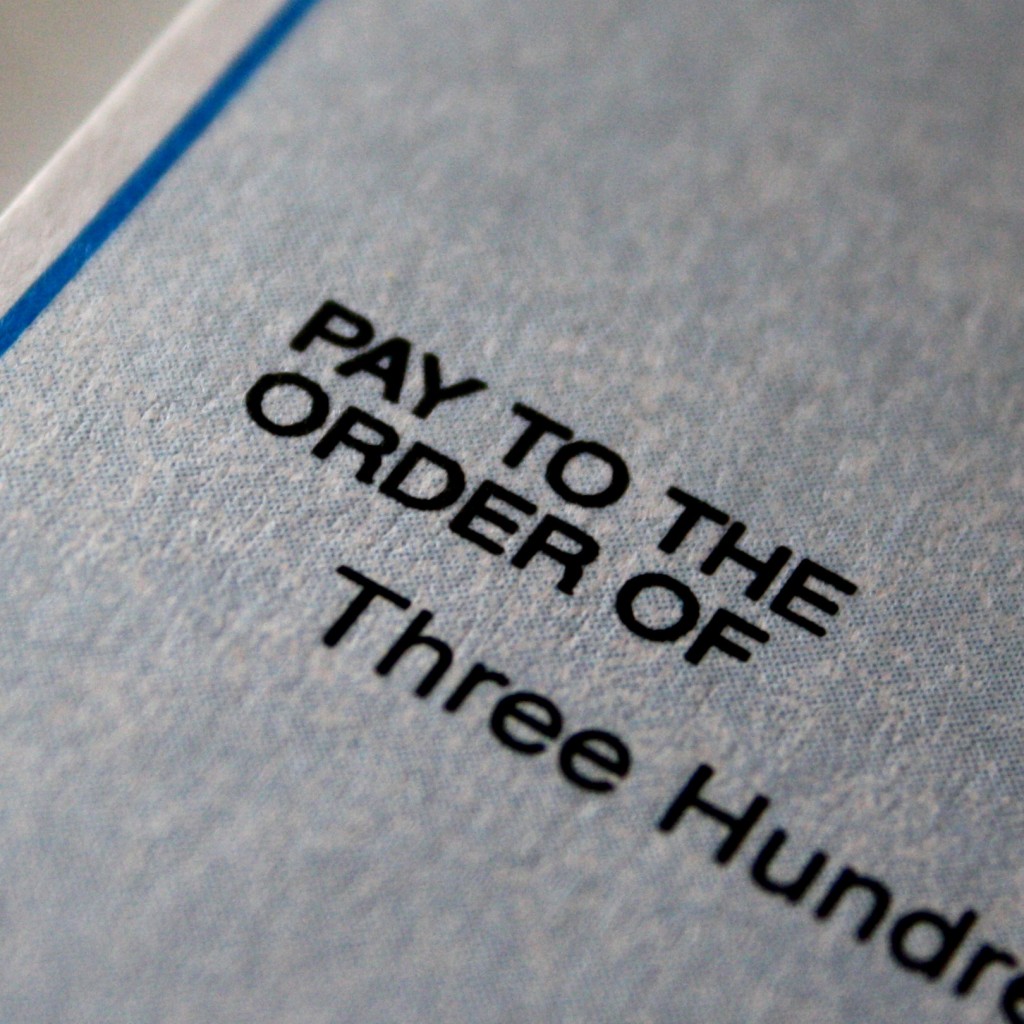We try to keep things nice and impersonal on here, for several reasons. The primary one is that it’s 2013, and a resourceful person with patience and a vendetta can find out more about you than you might be comfortable disclosing, so why make it easier for them?
But without sharing too much with you, we’ve managed to position ourselves so that we don’t have to work. And believe us, we don’t. At least not at conventional jobs with a boss, and a workplace, and a regular schedule, and a break room (“This yogurt is Michelle’s. Please do not touch”), and a sexual harassment policy and an annual employee picnic. We can live off our passive income, and have no desire to go back to the real world. Those of you who have regular jobs and enjoy them, we might not understand you, but we salute you. Thanks for keeping our gross domestic product high.
We wouldn’t give up this lifestyle for anything. We get to travel extensively, live in a nice house, drive serviceable if not ostentatious cars, and never have to worry about creditors taking any of it away. So how do we do it?
That’s easy: we sponge off the government!
Kidding. Sure, there was some serendipity along the way, but the vast majority of our success can be credited to not doing stupid things. We could write a book (heck, we did) about all the stupid things you could build wealth by avoiding. Here are a few of the biggest culprits in this, the inaugural post in an irregular series:
Tobacco, alcohol, drugs. As best we can tell, the median price of a deck of smokes is around $7. We’re not going to do the math for you, as any idiot can multiply $7 by 365, but the good news for those of you who are scarfing down a pack a day is that you’re probably keeping the weight off. No wait, on further examination a lot of you are fat. Also, any weight you’re failing to gain is that of healthy pink lung tissue, and why would you want to cultivate that?
A “gram” of pot costs $15 to $20, given that your dealer probably isn’t arranging it on a scale calibrated in grams, nor operating under the purview of your state’s Bureau of Weights and Measures. That’ll get you one or two joints, but hey, none of you are serious pot smokers, right? Just once in a while, just to get a good buzz, I hardly ever smoke, only when there’s no beer around, it’s better for you than alcohol you know, etc.
So yeah. If you can put it in your mouth and emits smoke, it’s keeping you from being as rich as you’d otherwise be. Pointing that out hardly counts as thought.
Okay, fine. But you expect me to give up alcohol, too? That’s crazy talk.
We don’t “expect” you to give up anything. We wrote about this on Money Funk a couple years back and the commenters told us we were being judgmental, which is ludicrous. As if pointing out that alcohol purveyors expect money in exchange for their sweet brown liquids is somehow heresy.
The major booze trade organization’s own estimates say it’s close to a $400 billion industry. Divide that into the number of people who live in the United States (subtracting the kids and the people on dialysis, of course) and then try to determine which side of average your own alcohol expenses are on.
The catcalls are starting already, we can hear them. Fine, you need it to relax. Some of us don’t. You can’t imagine being in a social setting and not drinking. We don’t dispute that, but some of us have broader imaginations.
You know what’s funny? Even The Cheapest Man on the Planet, the guy who would rather do indoor craft projects 30 nights in a row with construction paper he dug out of his neighbor’s garbage than go to a movie once a month, can’t bring himself to say that drinking is about as unnecessary as expenses get. And it’s not as if our hero is some socially well-adjusted extrovert, either.
Education. “The Greatest Investment You Can Make”. An utter lie, and maybe the more we repeat this the faster it’ll sink in. Why is it a lie? Because formal college education is not uniform. Here’s where people love to cite studies showing that people with bachelor’s degrees earn more than high school dropouts, and people with advanced degrees earn more still.
Amassing college credits, without respect to what subject they’re in, is like consuming calories without respect to what food they’re coming from. That Bachelor of Arts in comparative literature will benefit you even less than eating a diet consisting exclusively of chocolate will. At least the chocolate doesn’t have to be financed to the tune of tens of thousands of dollars, nor does it take 4 years to eat.
The arts in general: bad, at least financially speaking. (Last we checked, while several universities promise significant non-financial rewards, their admissions offices still expect payment in legal tender.) Math and science: good. Marvel at the works of Degas and Milton all you want, but if you must, don’t spend years and (borrowed) money for the privilege. Because it’s not a privilege, it’s an expense.
That doesn’t mean you’ll be ready to take on the world with a high school diploma. You probably won’t. But you can learn a marketable, worthwhile trade without committing huge money nor huge time to the endeavor. Those studies referenced above? For some reason, they never specifically compare liberal arts graduates to steelworkers or machinists. To some effete people, there’s a stigma to working with your hands. To us, there’s a stigma to incurring pointless debt that you’ll take decades to pay off. Ceteris paribus, the $52,000-a-year electrician with a contractor’s license is a better human being than the $30,000-a-year retail clerk who can parse Noam Chomsky’s theory of universal grammar.
That wasn’t so hard, was it? None of that stuff is painful, or even inconvenient. It’s not like we’re telling you to go without sleeping or shaving. But it’s a start. More next time.





